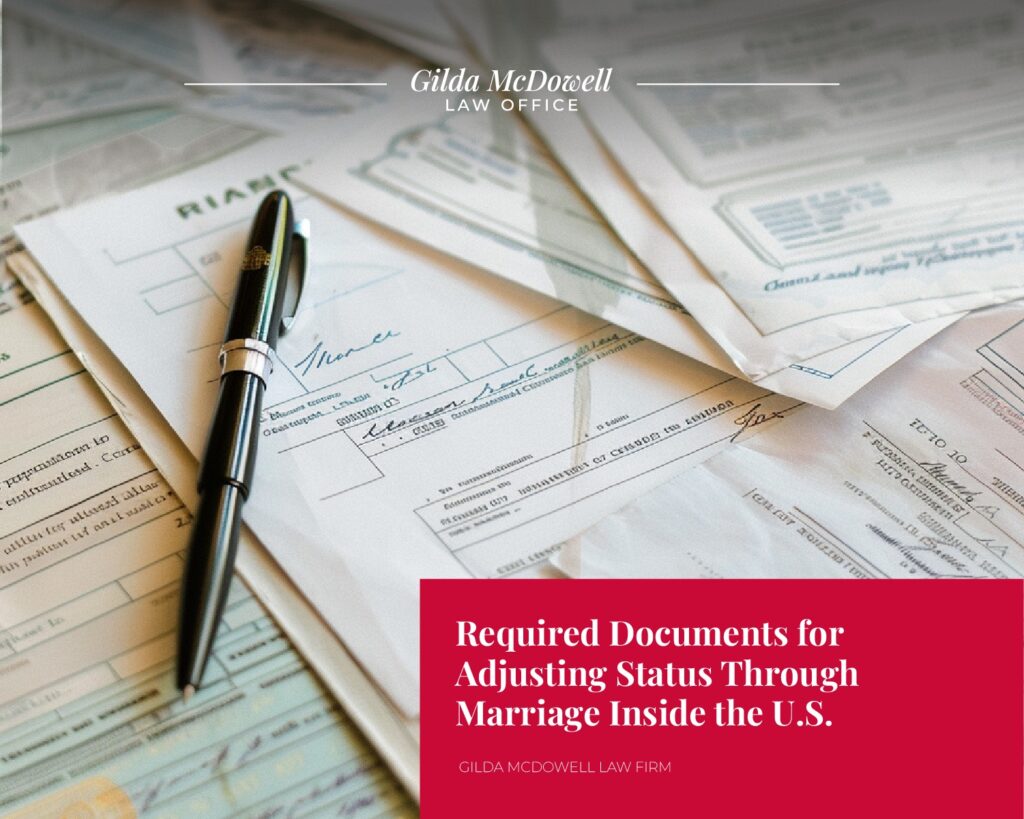Married? Great. But That’s Just the Beginning.
Getting married to a U.S. citizen or lawful permanent resident can be a life-changing moment — and for many immigrants, it’s the first step toward obtaining a green card and building a future in the United States.
But here’s the truth:
Thousands of marriage-based green card applications are denied each year, not because the marriage isn’t real, but because applicants fall victim to common myths about what’s “enough” to prove a legitimate relationship.
Many couples believe that a marriage certificate alone will suffice. Others believe that a handful of photos or joint bills will suffice for USCIS.
The result? Costly delays, denials, and sometimes even removal proceedings.
Let’s walk through one of the most damaging myths in the marriage-based green card process — and show you what it really takes to prove your relationship is real in the eyes of U.S. immigration authorities.
Myth #1: “A Marriage Certificate Is Enough to Prove a Real Marriage”
Think your marriage certificate is all you need to get a green card?
Think again.
While having a legal marriage is the required foundation for a marriage-based green card, USCIS is looking for proof that your relationship is genuine, not just legal.
A marriage certificate confirms that you’re married.
It does not show:
- How long you’ve known each other
- Whether you live together
- Whether you share financial responsibilities
- Whether your family and friends recognize your relationship
- Whether your daily life reflects that of a real couple
In fact, USCIS officers are trained to spot signs of marriage fraud, and they will closely examine your case for red flags — including short courtships, age or language barriers, or minimal shared documentation.
What USCIS
Does
Want to See in a Marriage-Based Green Card Application
To prove your marriage is bona fide (real), you need compelling evidence of your life together, such as:
- Joint financial records: shared bank accounts, credit cards, car loans, tax returns
- Shared housing: lease agreements, utility bills, mail addressed to both of you at the same address
- Photos: from different events and time periods — ideally with friends or family present
- Travel records: tickets, itineraries, or hotel stays from shared vacations
- Affidavits from loved ones: written statements from people who know both of you and can vouch for your relationship
- Personal messages: text threads, emails, cards, or call logs — especially from before marriage
💡 Pro Tip: Submitting a “relationship timeline” that outlines your story — how you met, when you moved in, key milestones — can help USCIS understand your connection.
For a complete checklist of acceptable evidence, refer to USCIS’s marriage-based green card guidelines.
Why This Myth Causes So Many Green Card Denials
Couples who rely solely on their marriage certificate often:
- Underestimate USCIS scrutiny
- Submit incomplete applications
- Trigger Requests for Evidence (RFEs) or in-person interviews
- Appear unprepared or evasive during interviews
- Face outright denials due to a lack of evidence
Even genuine couples can be denied if their application doesn’t tell the whole story.
The Stakes Are Too High to Rely on Assumptions
A denied green card can lead to:
- Months or years of delays
- Separation from your spouse
- Financial hardship from lost fees and legal costs
- In the worst case: deportation or being barred from applying again
If you’re applying from within the U.S., this can also jeopardize your work permit or ability to travel while your case is pending.
Don’t let a simple mistake — or a common myth — derail your future.
Frequently Asked Questions About Marriage-Based Green Card Evidence
Is a marriage certificate required?
Yes — but it’s just the starting point. USCIS needs much more to approve your application.
What if we don’t have joint bank accounts yet?
Submit what you do have, and explain why certain records are missing. Every couple’s situation is different.
Can we still qualify if we’ve only been married a short time?
Yes, but you’ll need strong evidence from before and after your wedding. Include texts, photos, travel, and detailed affidavits.
Do same-sex couples face more scrutiny?
No — USCIS applies the same standards to all marriages. The focus is on the legitimacy of the relationship.
What happens if our application is denied?
You may be able to appeal, file a motion to reopen, or reapply with stronger documentation. However, timing is critical, so consult an immigration attorney immediately.
Don’t Risk a Denial Over a Preventable Mistake
A marriage-based green card can open the door to a secure future — but only if your application tells the full, authentic story of your relationship.
✅ Show more than just your marriage certificate
✅ Provide compelling, consistent evidence
✅ Be prepared to explain your relationship history
✅ Get help if you’re unsure what to submit

